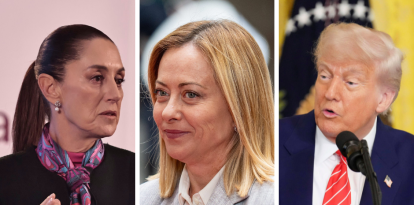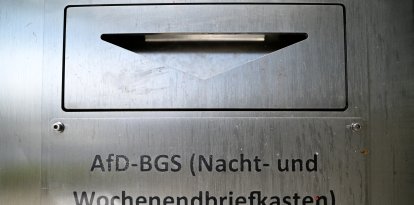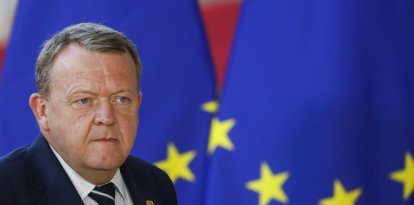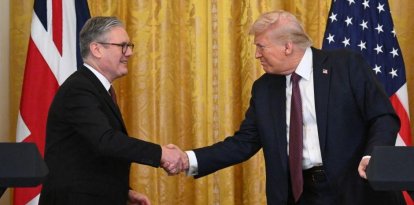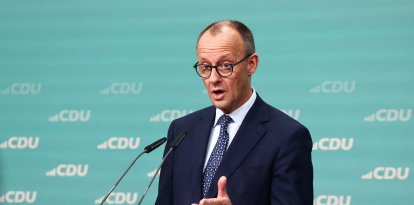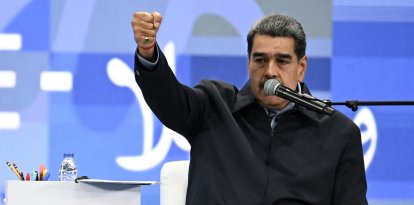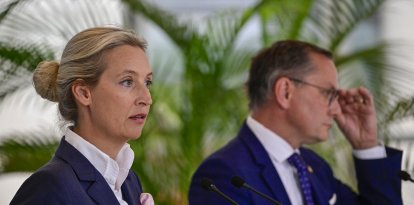Venezuela approaches presidential election amidst persecution, intimidation and censorship
At least 76 people have been arbitrarily arrested in the first 15 days of the electoral campaign. Meanwhile, Nicolás Maduro warns of a "bloodbath" if he fails to stay in power.

Venezuelans protest against the Maduro regime
The Nicolás Maduro regime has increased persecution and censorship just a few days before the presidential election, in which the opposition is the favorite to achieve a political change in the country.
In recent days, the dictator has not only ordered the arrest of several activists linked to María Corina Machado and Edmundo González Urrutia, the candidate backed by Machado after the regime prevented Machado's candidacy. Just this Tuesday, the opposition campaign command claimed that at least six people were arrested in the state of Zulia.
The coordinator of the regional team, Gustavo Ruiz, told journalists that a police entity, still unidentified, detained campaign affiliates in two trucks, as reported by the Venezuelan newspaper El Nacional.
This is just one of Maduro's latest attacks on the opposition. The NGO Laboratorio de Paz recorded 76 arbitrary arrests in the first 15 days of the electoral campaign (which ends on Thursday). This figure does not include the six additional arrests registered this Tuesday.
The situation comes at a time when NGOs are claiming that the persecution by the Venezuelan regime against the opposition is on the rise. There are currently more than 300 political prisoners in Venezuela. The Venezuelan Penal Forum, which keeps a registry of political prisoners, alerted last week that, so far in 2024, there have been 114 arbitrary arrests for political purposes.
Of those cases, 102 arrests are related to the team or tours of Maria Corina Machado and opposition presidential candidate Edmundo Gonzalez. Meanwhile, the number of political prisoners in Venezuela stands at 301.
But the kidnapping of opponents has not been the only method used by the regime to intimidate the opposition. Maduro has also used rhetoric involving threats and fear tactics. The dictator affirmed that an opposition victory in Sunday's elections would result in a "bloodbath."
The Venezuelan's statements generated alert even among his own allies. Brazil's socialist president, Luiz Inácio Lula da Silva, assured that he was frightened by Maduro's warnings.
"I was frightened by Maduro's statements, that if he loses the elections there will be a bloodbath. Whoever loses the elections bathes in votes, not in blood," said the Brazilian president about his ally during a press conference with international agencies in Brasilia.
Similar was the position of the socialist Alberto Fernandez, former president of Argentina: "If he is defeated, what he has to do is to accept; as Lula said, he who wins, wins, and he who loses, loses. Period. It's over. That's democracy," said Fernández in an interview with Radio Con Vos.
Meanwhile, the electoral process continues to lack the transparency expected in a democratic election. Plataforma Unitaria, the main opposition coalition, has claimed there are "technical problems" in the electoral authority's website to accredit its witnesses for the presidential elections.

World
Venezuela: Chavismo paves the way for electoral fraud and blocks the accreditation of electoral witnesses from the opposition
Emmanuel Alejandro Rondón
Without opposition witnesses, it is not possible to verify that the result dictated by the National Electoral Council is the one expressed by Venezuelans at the polls.
Delsa Solórzano, the main Plataforma Unitaria witness of the vote count, affirmed that 99.5% of the opposition witnesses are loaded by the political organization in the electoral body's system, but they are still waiting for the physical document that allows them to enter the polling stations.
While all these irregularities in the Venezuelan electoral process are being registered, the dictatorship censored three media portals: TalCual, Runrunes and El Estímulo. Other important media such as the newspaper El Nacional were blocked by the regime months ago.
In this regard, the NGO Espacio Público indicated that since the electoral campaign began on July 4, 10 portals have been blocked, including news and non-profit organizations.
RECOMMENDATION
